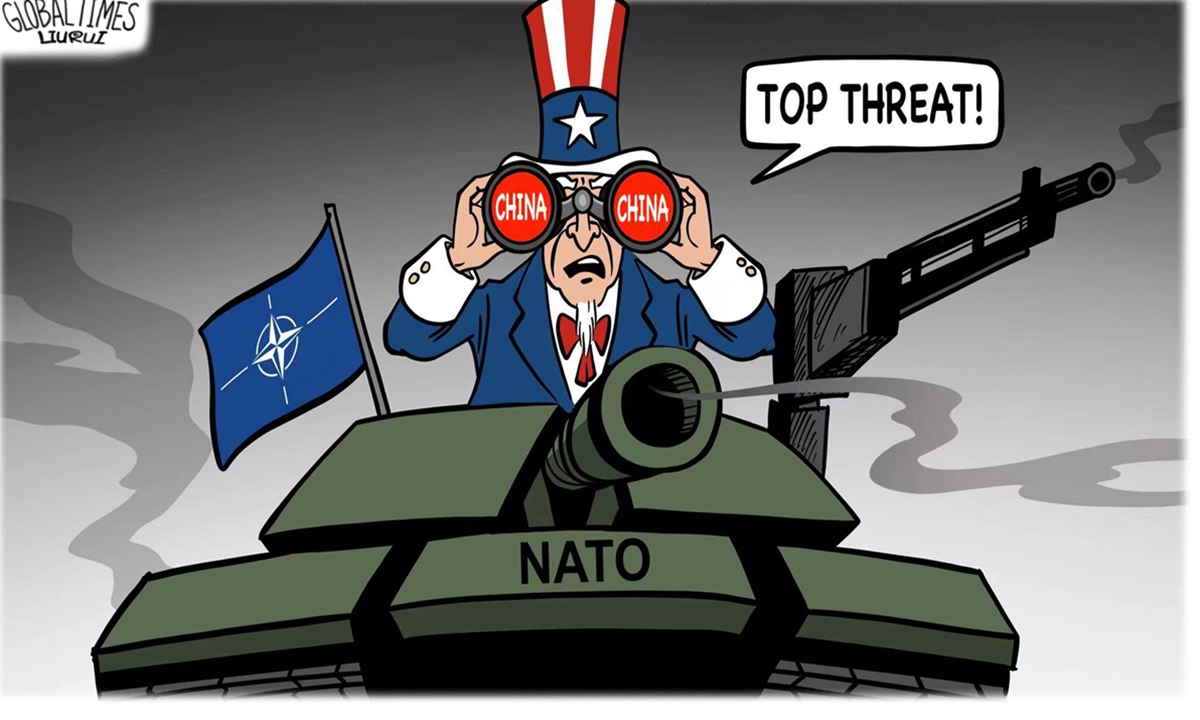
Illustration: Liu Rui/GT
Is NATO heading for a showdown? The "Steadfast Defender 2024" exercises, NATO's largest military exercises planned since the end of the Cold War, appear to be preparation for a complex endgame. From the Atlantic to NATO's eastern flank, 90,000 NATO troops will participate in the exercises across the theatre. This is more than just a show of force; it demonstrates strategic movement.
The upcoming exercises, which will make use of real world geographic data for the first time, are not an isolated event, but rather a response to the turbulent changes in global and European geopolitical dynamics.The ongoing Russia-Ukraine conflict has become an important piece of the puzzle, fueling the political uncertainty currently gripping Europe and the world at large.
NATO's increased combat readiness is rapidly spreading a sense of urgency that "a major war is imminent," and most notably, NATO is endeavoring to extend this war tension to Asia.
NATO's use of the term "adversary" in this context was widely interpreted by the European media as an allusion to Russia. However, the ripple effects of the exercises extend far beyond Europe's periphery. There is a clear trend within NATO to extend its military influence to Asia, with its leaders amplifying the "China threat" narrative.
NATO's Secretary-General Jens Stoltenberg and the UK's Defense Secretary Grant Shapps have made statements that reflect this pivot. Stoltenberg's remarks that "this is not about NATO moving into Asia, but instead about the fact that China is coming close to us," paired with Shapps' speech in London, where he noted that "China is assessing whether the West loses its patience," signal a dangerous conflation. China is no longer seen merely as a supporter in the Russia-Ukraine scenario but is being categorized as part of a group that NATO and the US consider adversarial.
NATO intends to contain China's rise with military force, demonstrating its role as a strategic tool of the US.
The US aims to closely align China's neighboring countries with its strategy toward China. Japan's recent announcement of purchasing Tomahawk cruise missiles to enhance its offensive capabilities signifies a shift from its exclusively defense-oriented policy and testifies to this growing alliance. NATO, in turn, is strengthening its military ties with China's neighbors, especially Japan, and is attempting to open an office in Japan to facilitate consultations in the region.
In the discourse of international relations, NATO's actions and intentions as a military organization are examined in the context of promoting peace or instigating war. The current narrative surrounding the "Chinese threat" suggests the potential escalation of conflict, particularly in China's neighboring regions, where countries are either encouraged to cooperate or coerced into taking sides by the US.
China, as the world's second-largest economy, is bound to continue strengthening its ties with the global growth. China's development has been evident in various fields, and the fact that made-in-China products have penetrated the European market is the best proof of China's economic development. However, it is important to note that China's rise has not been marked by military aggression or territorial expansion, especially in its neighboring regions. The Chinese government has not engaged in any military actions or deployed troops, warships, or aircraft to Europe. Even if China had the capability to exert power, it has no intention of taking such actions.
NATO must recognize that its impulse to expand into Asia can be perceived as an extension of US geopolitical strategy, potentially leading to increased tensions as regional actors may view NATO's actions as a direct challenge to their sovereignty and security interests. Asia will not rely on a Western military organization to orchestrate its peace process.
The current situation differs significantly from NATO's perspective. China is not assessing whether the West is losing patience, but rather insists that NATO accurately assess the impact of its actions in Asia. By positioning itself as a pawn in the US' strategic approach to China, NATO keeps pushing the boundaries of its expansion.













